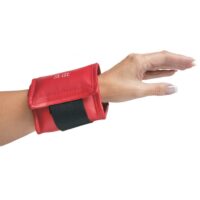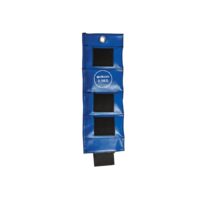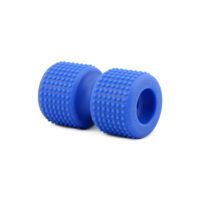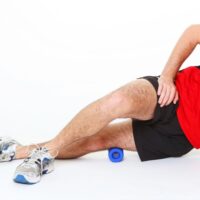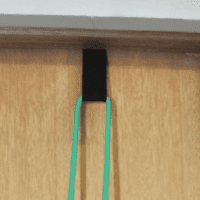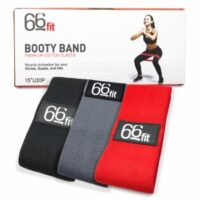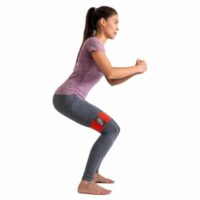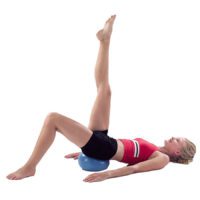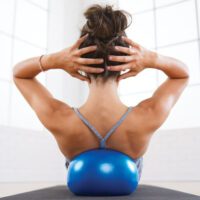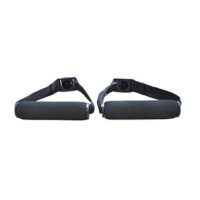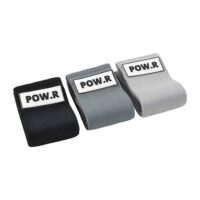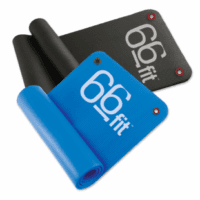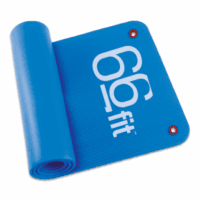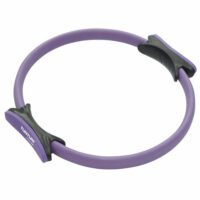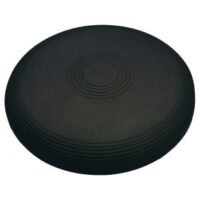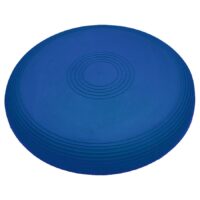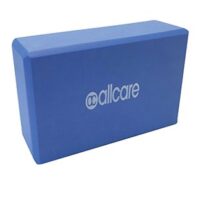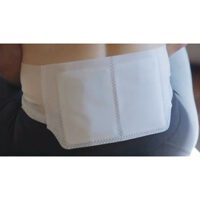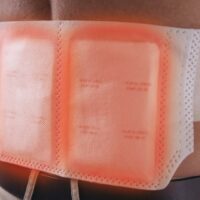Muscle Cramps
Article by John Miller
What are Muscle Cramps?
Muscle cramps are involuntary and often painful contractions of skeletal muscles. These spasms can last from a few seconds to several minutes and may strike suddenly. While cramps can occur in any muscle, they most commonly affect the legs. Muscle cramps can happen at rest, during exercise, or even at night, causing discomfort and sometimes sleep disruption.
Read more: Muscle Pain
What Causes Muscle Cramps?
Muscle cramps are caused by several factors, including dehydration, overuse, and poor circulation. They may also result from an electrolyte imbalance, where low levels of magnesium, potassium, or calcium disrupt normal muscle function.
- Dehydration: Loss of fluids and electrolytes due to excessive sweating during exercise or from inadequate fluid intake.
- Overuse: Repeated muscle strain, especially in athletes, can lead to fatigue and cramping.
- Pregnancy: Hormonal and physical changes can make muscles more susceptible to cramps.
- Poor Circulation: Reduced blood flow, particularly in the legs, can contribute to cramps.
- Medications: Certain drugs, like diuretics and statins, can trigger muscle cramps as a side effect.
Read more: Exercise Cramps
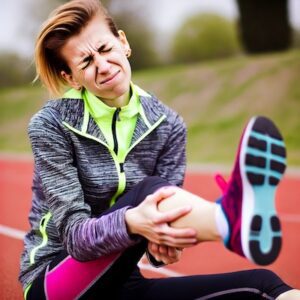
What Are Leg Cramps?
Leg cramps, particularly in the calves and hamstrings, are among the most common types of muscle cramps. These spasms can occur during everyday activities, physical exertion, or while resting. Some people also experience leg cramps at night, known as nocturnal cramps, which can disturb sleep. The primary causes of leg cramps include dehydration, electrolyte imbalance, overexertion, and poor circulation.
What Are Night Cramps?
Night cramps, or nocturnal cramps, usually occur during sleep and are known for waking individuals with sudden, intense pain. They often affect the legs, especially the calves, and can be caused by dehydration, poor circulation, or imbalances in electrolytes like magnesium and potassium. Pregnant women are also more prone to night cramps due to increased pressure on blood vessels and hormonal changes.
What Are Exercise Cramps?
Exercise cramps, also known as Exercise-Associated Muscle Cramps (EAMC), occur during or immediately after physical activity. Athletes are especially prone to these cramps, which are usually caused by muscle fatigue, dehydration, and electrolyte loss through sweating. Improper warm-up, inadequate hydration, and overuse of muscles are common risk factors for exercise cramps.
Investigating and Preventing Muscle Cramps
To prevent muscle cramps, you must first identify the potential causes. Dehydration and electrolyte imbalances are common factors that should be addressed. Regular stretching, staying hydrated, and maintaining a balanced intake of electrolytes can help prevent cramps. For athletes, incorporating a proper warm-up and cool-down routine is essential. A doctor or physiotherapist can assess your condition and offer tailored advice for preventing future cramps.
Treatment for Muscle Cramps
Immediate relief from cramps can be achieved through stretching the affected muscle, such as pulling your toes towards your knee during a calf cramp. Applying heat or cold therapy may also help alleviate pain. If you experience recurring cramps, a physiotherapist can create a stretching and strengthening program to prevent further issues. In more severe cases, your doctor may recommend additional tests, such as blood work or imaging, to determine any underlying medical conditions.
Can Pickle Juice Help with Muscle Cramps?
Pickle juice has gained popularity as a quick remedy for muscle cramps, particularly among athletes. The high sodium content in pickle juice is believed to help restore electrolyte balance rapidly, which can relieve cramps faster than water alone. Some studies suggest that the acidity of pickle juice may trigger a reflex in the nervous system that stops muscle cramps almost immediately. While more research is needed, many athletes swear by pickle juice as an effective, fast-acting solution for cramps. However, it’s essential to maintain regular hydration and electrolyte levels through a balanced diet to prevent cramps from occurring in the first place. Tapper et al (2022).
Latest Research on Exercise-Associated Muscle Cramps
A 2022 evidence-based review published in The Journal of Athletic Training examined the pathophysiology, treatment, and prevention of Exercise-Associated Muscle Cramps (EAMCs). The study highlighted that EAMCs are caused by a combination of intrinsic and extrinsic factors, rather than a single cause. Acute EAMC treatment still involves gentle static stretching to relieve symptoms, while prevention strategies should be tailored to each individual’s specific risk factors. The review suggests that personalised prevention plans, rather than generic advice like increasing fluid intake, are more effective for long-term management of EAMCs (Miller et al., 2022).
What to Do?
If you suffer from frequent or severe muscle cramps, it’s essential to consult a doctor or physiotherapist. A comprehensive assessment can identify potential triggers and lead to a personalised treatment plan. Hydration, regular stretching, and addressing underlying medical issues can help reduce cramps in the long term.
Rochedale - Call 38410277
Book Online: RochedaleSalisbury - Call 32751044
Book Online: SalisburySandgate - Call 32691122
Book Online: SandgateMuscle Cramps FAQs
- Why do muscles cramp?
Muscle cramps occur due to dehydration, electrolyte imbalance, or overuse of muscles. - How can I prevent muscle cramps?
You can prevent cramps by staying hydrated, stretching regularly, and maintaining balanced electrolytes. - What causes leg cramps at night?
Night cramps often result from dehydration, poor circulation, or an electrolyte deficiency. - How do I stop leg cramps quickly?
Stretching the affected muscle and drinking water or pickle juice can provide immediate relief from leg cramps. - Who gets muscle cramps most often?
Athletes, pregnant women, and people with electrolyte imbalances are more likely to experience cramps. - Where do muscle cramps occur?
Muscle cramps commonly affect the legs, particularly the calves and hamstrings. - When do muscle cramps happen?
Cramps can occur during exercise, at rest, or at night while sleeping. - What should I do during a cramp?
To relieve a cramp, stretch the muscle, hydrate, and change your position. - Why do night cramps occur?
Night cramps are often caused by poor circulation, dehydration, or low levels of certain electrolytes. - How does hydration help prevent cramps?
Hydration ensures proper muscle function by balancing electrolytes, which helps prevent cramping.
Related Articles
- Investigating Exercise-Associated Muscle Cramps (EAMC): When to seek further investigation for recurring exercise cramps.
- Understanding Muscle Cramps: Explains the causes, symptoms, and prevention methods for muscle cramps.
- Preventing Muscle Cramps During Exercise: Offers tips for athletes to avoid cramps during physical activity.
- The Science Behind Muscle Cramps: Discusses the research behind muscle cramps and how to manage them effectively.
Social Media Follow Us for Free Tips
Stay informed and prevent muscle cramps by following us on social media! Get regular tips on hydration, stretching techniques, and more to keep your muscles healthy.







